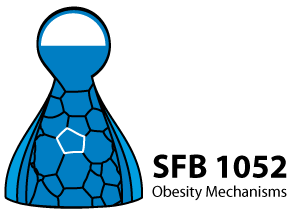
Figure 1: Qualification concept for doctoral researchers of the IRTG “Obesity Mechanisms” including adaption regarding the third funding period marked cursively.
The major objective of “Obesity Science” is to provide the best possible conditions for fostering research excellence in the doctoral research projects. A supervision agreement, co-supervision and progress reporting accompany the qualification program to guarantee an optimal support for the doctoral researchers. The qualification element “School of Obesity Mechanisms” serves 11 scientific modules establishing common and advance knowledge conducted from the broad experience of the project leaders. Comprising all aspects of current obesity, the modules combine a specific background of molecular mechanisms of energy metabolisms and its dysregulation, investigate therapeutic targets in obesity, explore psychological intervention for behaviour change, and provide access to cohorts. An annual doctoral meeting is open to all IRTG members of the CRC and emphasizes on specific and practical training in research methodologies and supports the development of a professional network. We encourage the doctoral researchers to perform “Obesity Research Rotations” in other groups of the CRC or non-governmental organisations and companies. Research stays at laboratories abroad or in other laboratories of the CRC give new insights into methodological expertise and new analytic methods for the doctoral thesis project. It further facilitates the exchange between early career scientists and renowned scientists of the host research group to establish long-standing collaborations and contribute to the development of the academic career path of participating doctoral researchers. Individual support of sub-specialty general skills of a doctoral researcher is given by the module transferable “Skills Training”, the fourth competence section of the IRTG profile. The specific needs of the doctoral researchers are served through complementary soft skill workshops addressing aspects of how to give professional presentations, write manuscripts, data management and seminars on the principles of good scientific practice (GSP). Additionally, interdisciplinary and international collaborations of the CRC facilitate excellent conditions for networking and exclusive access to short-term international exchange and postdoc opportunities for the members of the IRTG. In summary, doctoral researchers of the IRTG are trained for a successful career as scientific obesity expert and for career paths outside the academic system.
The members of the graduate program will receive their PhD from one of the involved faculties. Below you can find the PhD regulations of the faculties.
Each student is assigned to two tutors who are project leaders of the CRC. The first tutor is the doctoral advisor and project leader (PL) of the employing subproject. The second tutor will also be a PI of the CRC and ideally have a distinct scientific background. The tutors are responsible for structuring the project and the curriculum, an annual of the progress made by the students in completing their project, and of the qualification for and the preparation of the defence of the PhD or MD thesis.
To gain an open, fair and transparent approach by all those involved in the doctoral process the doctoral supervision agreement will ensure a good basis right from the start. Agreement template between the doctoral researcher, supervisor and mentor at Leipzig University are found here supervision agreement.

